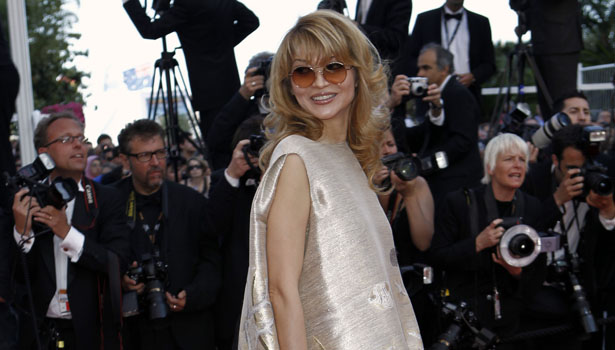She was at one point, the most powerful female figure in Central Asia. Today, Gulnara Karimova, daughter of Uzbekistan’s President Islam Karimov, remains with the confines of her home, where she is currently serving house arrest at the request of her own father.
Born into immense wealth, Karimova’s upbringing was a bizarre mixture of outrageous luxury and unprecedented political and social mobility. Educated at Harvard, she would become ambassador to Spain, Deputy Foreign Minister of Uzbekistan and Uzbek representative to the United Nations. Politics aside, Karimova dominated the cultural scene as well. She developed her own fashion shows, started a perfume label and even adopted the alter ego GooGoosha as a means to promote her music videos. Her business empire expanded into Uzbekistan’s oil industry and mobile phone network, racking up a net-worth of £370m, and enabling Karimova to snatch up luxury properties all over the world, including in London, Hong Kong and Dubai.

Karimova’s dream of remaining one of the most influential individuals within Uzbekistan was short lived. Not long after intercepted diplomatic cables labeling Karimova as being “the single most hated person in the country” were leaked, her fairytale existence took a turn for the worse. Blamed for engaging in corruption and financial mismanagement, and denied the opportunity to a fair trial, Karimova was sentenced to house arrest where she is currently living under the watchful eye of state security. In what is believed the be the result of a power-struggle between father and daughter, Karimova has since taken to social media, claiming that she is in need of medical assistance, criticizing her mother for engaging in sorcery, and espousing hatred towards her father’s autocratic regime.
Karimova’s arrest is not only indicative of Uzbekistan’s corrupt and unaccountable legal system, but also offers a rare glimpse into the highly guarded and closed-off political structure within the country itself. Rich in oil, yet economically stagnant, the country’s political authority remains in the hands of President Islam Karimov and his inner circle. Freedom of speech, press, movement or religion are strictly suppressed. Judicial courts are supervised by the president himself, with members of the judiciary accountable to the will of Karimov rather than being independent. Torture, forced labor, beatings and sexual violence are common-place.
Of its many crimes, the state is most notorious for enforcing cotton slavery, forcing men, women and children to work under harsh conditions while receiving no compensation, and being subject to abuse if they refuse, run away, or speak out against the crime. As of 2014, Uzbekistan was listed by the Index of Economic Freedom as being one of the worst cases in the world, due to its extremely limited social, economic and political freedoms.

Its not clear what the future holds for Gulnara Karimova, and if she will ever obtain the same level of political, social and economic status that she was once so accustomed to. Her reputation may be tarnished and her assets frozen, and the likelihood of her leveraging amnesty from the state is increasingly slim. If there is anything to be learned from Uzbekistan’s secretive regime, it is that politics takes a clear precedence over everything, especially family values. Hannah Styffe




